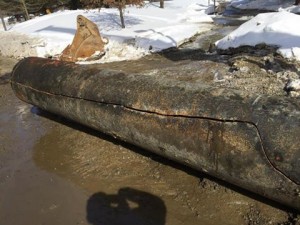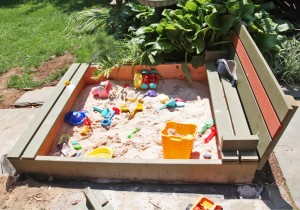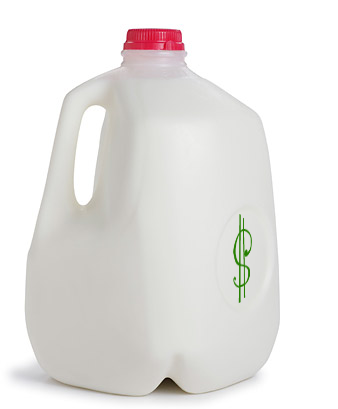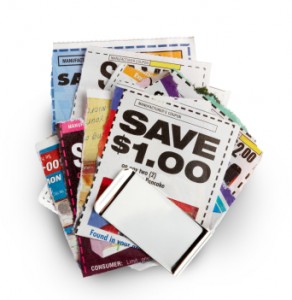
Anything that can go wrong, will go wrong.
Just when you think things can’t get much worse, they do! And that’s exactly what happened in my town today.
Last night, a water main break caused millions of gallons of water from our reservoirs to drain nearly completely. As of this morning, we are under a state of emergency. We are not allowed to use any water from the city water supply, unless it is a dire emergency, and even then we must boil the water before drinking it. Some water customers don’t even have the luxury of being able to boil it, because the faucets are bone dry.
And, I thought the frozen pipes in my kitchen the other day were bad enough!
So, not surprisingly, the current state of affairs in my town has me (and thousands of others) thinking about ways to conserve water in an emergency. Although it’s a bit of a pain not having running water, we’re making out better than I thought by just making a few adjustments.
I hope no one ever has to go through anything like this, but life happens sometimes. If you ever need ways to conserve water in an emergency, here are a few tips…
Determine Water NEEDS vs Water WANTS
First and foremost, you’ll need to decide what you really NEED water for when you need to conserve water in an emergency. Not only will using water only for necessities help conserve water, but your local municipality may actually restrict water usage during some water emergencies. Drinking water is obviously an important essential, as is some water for cooking. You’ll also need a little water for washing and flushing your toilet. My plants can wait for a good drink, and as much as I hate to do it, my coffee maker will be getting a break for the next few weeks as well. I guess I’ll also have to wait to fill my pool, water my lawn, wash the Jeep, and give the cat a bath.
Stock Up on Water Early
Jugs of water are the first to fly off the shelf during an emergency, followed by individual bottles of water. Nearly all of the stores in my town were out of water within an hour after news of the water main break spread. Ideally every household should have at least a three day supply of at 1 gallon of water per person stocked up in case of emergency. If you don’t have any emergency water stored, you’ll need to stock up as soon as possible. Call around to your local stores to inquire about their water supply in case of a widespread water emergency in your area.
Gather Clean Containers
If you have a means to refill water from a clean and abundant source, you may also want to gather up clean containers that you can refill and seal. We’re lucky enough to have relatives with well water and natural springs in our area, so we’re refilling old drinking water jugs. We also picked up gallon jugs of juice and iced tea as well as 2-liters of ginger ale that can be washed and refilled with water if necessary.
Close the Hot Water Supply Valve
Your hot water tank holds several gallons of water in case of emergency. In order to conserve water and reduce contamination, we turned off the hot water supply valve, which prevents water from entering the tank. In an emergency, we can drain the water from the hot water tank from the valve at the bottom. To be safe, it will still be boiled before using it for drinking or cooking.
Consider “Alternatives” for Non-potable Water
Some of the water that we use on an everyday basis isn’t for drinking and cooking. It’s used for other things, like washing our hands, flushing the toilets, cleaning, and washing clothes. For these tasks, water doesn’t necessarily need to be completely clean and free of bacteria. If you have something to store it in, you may want to collect non-potable water as well, especially for flushing the toilet. We’re actually collecting snow and letting it melt for this, but you can also collect water from swimming pools, streams, ponds, and rain barrels.
Take a Navy Shower
A “Navy shower” requires much less water than the traditional showers that most people are used to. Turn on the water long enough to get wet, then turn the water off while you shampoo and wash your body. Only turn the water back on long enough to rinse the soap and shampoo. If you have no running water at all, you may need to resort to using buckets of water to wash too conserve water in an emergency. Fortunately, my mama is on the outside of town and has well water, so she’s awesome enough to let us use her shower.
Let the Mellow Yellow
Yep! I had to explain the concept of “if it’s yellow, let it mellow” to the kids today! One of the biggest ways to conserve water in an emergency is to avoid flushing the toilet if possible. Basically, we aren’t flushing unless there’s something solid in the bowl.
Reuse Gray Water
Gray water is the waste water from washing dishes, doing laundry, and washing your hands. It’s not clean enough to drink by any means, but it can be reused for some tasks. Flushing our toilet, for instance, is one of our biggest concerns right now, since we have almost no water feeding our toilet. Our plan is to use the non-potable water we’ve collected and reuse some of our gray water from washing dishes, clothes, hands, and ourselves. To flush the toilet without water, we’re filling the tank with non-potable water and flushing the toilet as usual.
Use a Cup to Brush
If you’re trying to conserve water in an emergency, you obviously won’t want to leave the sink water running. Instead, try to use bottle water. We have a gallon of clean drinking water in our bathroom, along with labeled disposable cups for brushing our teeth.
Stock Up on Baby Wipes
When you’re trying to conserve water in an emergency, baby wipes are a lifesaver! You can use them to wash dirty hands and even clean up counters, sinks, and tables. To conserve baby wipes, we’re also tossing lightly soiled wipes into a container with water and a little bleach to kill germs.
So far, we’re comfortable and it’s (almost) business as usual in my household. With all of our efforts to conserve water, I think we’ll be able to ride this out with minimal discomfort.
Have you ever had to conserve water in an emergency? What tips would you add? We could use all the help we can get!






